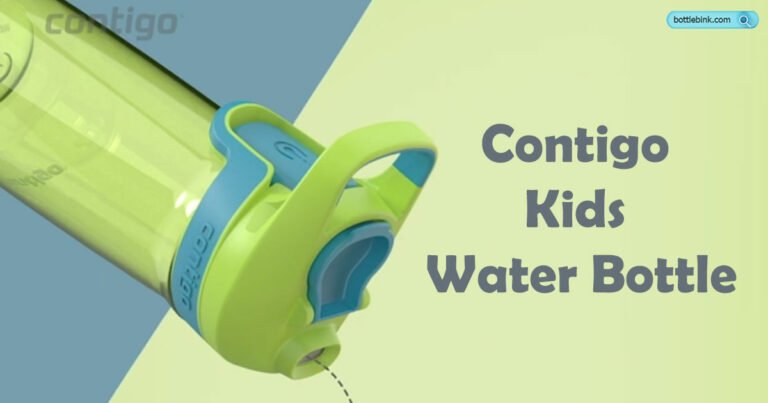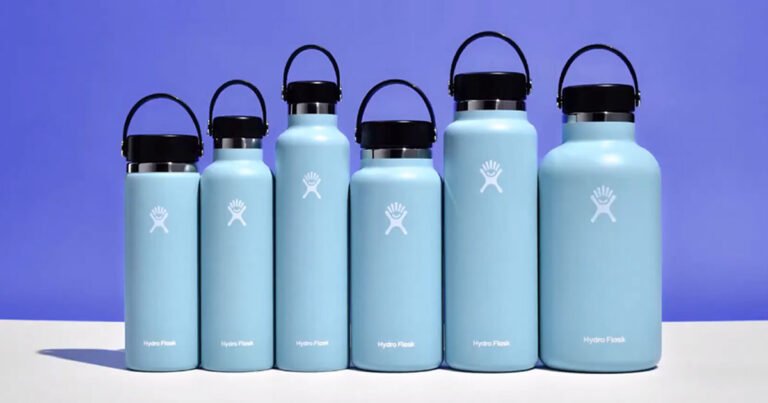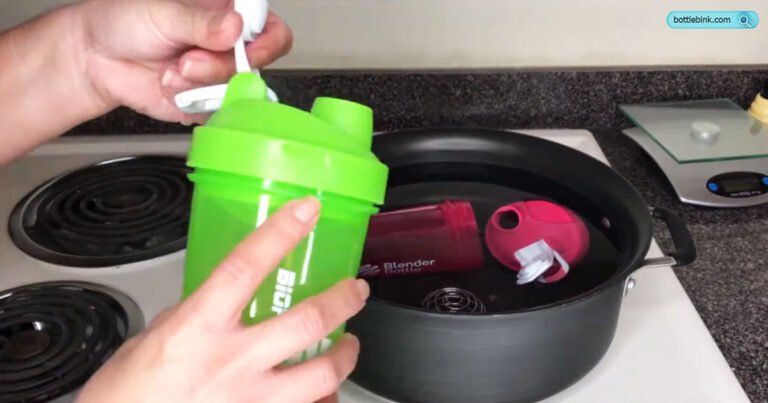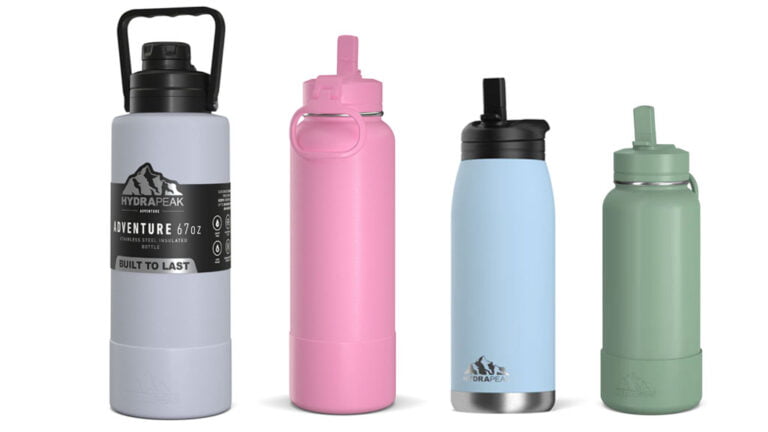Are Aluminum Water Bottles Safe? Find Out the Truth!
Aluminum water bottles are safe for drinking, as aluminum itself is not harmful. The CDC confirms this.
Aluminum water bottles are a good alternative to plastic bottles, especially those containing BPA. When considering the safety of water bottles, aluminum is a popular choice due to its non-toxic properties. In recent years, there has been a significant rise in the use of aluminum water bottles as a more sustainable and durable option than traditional plastic bottles.
Due to concerns about the potential health risks associated with plastic materials, many consumers are opting for aluminum bottles as a safer alternative. The issue of safety and health considerations in relation to aluminum water bottles has sparked a debate in the industry, with experts weighing in on the benefits and drawbacks of using aluminum as a material for water containers.
Aluminum Water Bottles: The Material
When it comes to choosing the right water bottle, considering the material is crucial to ensure safety and longevity. Aluminum, commonly used in the production of water bottles, has its unique properties and manufacturing processes that impact its safety and suitability for everyday use.
Properties Of Aluminum
Aluminum, known for its lightweight and corrosion-resistant properties, is a popular choice for manufacturing water bottles. Its malleability allows for various designs, making it versatile for creating different bottle shapes and sizes. Additionally, aluminum possesses a high strength-to-weight ratio, contributing to the durability of the water bottles made from this material.
Manufacturing Process Of Aluminum Water Bottles
The manufacturing process of aluminum water bottles involves several steps. First, aluminum sheets are formed into the desired shape using specialized machinery. The shaping process is followed by the application of a protective coating to prevent corrosion and maintain the integrity of the bottle. Subsequently, the bottles undergo quality checks to ensure they meet safety standards and regulations before being made available to consumers.
Safety Concerns
When it comes to using aluminum water bottles, safety concerns have been raised regarding potential health risks and their impact on the environment. Exploring the safety aspects of aluminum water bottles is crucial for making an informed decision about their usage.
Potential Health Risks
One of the primary concerns with aluminum water bottles is the potential health risks they pose. Studies have indicated that prolonged exposure to aluminium can be harmful to human health. It’s a metal that reacts to acidity, and therefore, aluminum drinks containers must have a plastic liner to prevent direct contact between the liquid and the metal.
Impact On Environment
Aside from the health risks, the impact of aluminum water bottles on the environment is a significant concern. While aluminum is recyclable, the manufacturing process and transportation contribute to environmental pollution. Additionally, the plastic liners in aluminum bottles can contain Bisphenol A (BPA), which is an environmental and health hazard if not properly managed.
Regulations And Standards
Aluminum water bottles are considered safe as aluminum is not harmful, making it a good alternative to plastic bottles, including those labeled BPA-free. However, they are known to absorb odors, flavors, and may scratch easily compared to stainless steel bottles.
Stainless steel bottles are often recommended as the healthiest choice due to their sustainability and lack of harmful chemicals.
Fda Regulations
Aluminum water bottles must comply with strict FDA regulations to ensure safety for consumers. These regulations cover the materials used in production, ensuring that the bottles do not pose any health risks.
Proposition 65 Compliance
Compliance with Proposition 65 is crucial for aluminum water bottle manufacturers. This proposition requires them to disclose if their products contain any chemicals known to cause cancer, birth defects, or other reproductive harm.

Credit: www.nytimes.com
Benefits Of Using Aluminum Water Bottles
Aluminum water bottles are safe and pose no health threat, according to the CDC. They are a good alternative to plastic bottles, including BPA-free options, as aluminum is not harmful and is considered hygienic.
Durability And Longevity
One of the key benefits of using aluminum water bottles is their exceptional durability and longevity. Unlike plastic bottles that can crack or break easily, aluminum bottles are built to withstand wear and tear, making them suitable for both outdoor adventures and everyday use.
Aluminum is a strong and sturdy material that can withstand accidental drops and rough handling without compromising its integrity. This means that you can trust your aluminum water bottle to stay intact and leak-proof, even in the most demanding situations.
Additionally, aluminum bottles are resistant to corrosion, meaning they won’t rust or deteriorate over time. This quality ensures that your water bottle will maintain its sleek appearance and functionality for years to come.
Sustainability
Choosing aluminum water bottles over single-use plastic bottles is a sustainable choice that contributes to environmental preservation. Aluminum is a highly recyclable material, with the ability to be recycled indefinitely without losing its quality.
By opting for an aluminum water bottle, you are reducing the demand for single-use plastics and minimizing your carbon footprint. This simple action can have a significant positive impact on the environment and help combat the global issue of plastic pollution.
Moreover, aluminum production requires less energy compared to other materials, further reducing its environmental impact. So not only are aluminum water bottles durable, but they are also eco-friendly.
Lastly, the benefits of using aluminum water bottles are clear. Their durability and longevity ensure that they can withstand the test of time, making them a reliable choice for daily hydration. Additionally, their sustainability factor makes them an excellent alternative to single-use plastic bottles, helping you contribute to a greener planet. So, why not make the switch to aluminum and enjoy these advantages while hydrating on the go?
Tips For Safe Usage
Aluminum water bottles are considered safe for usage. According to the CDC, aluminum is not harmful and is a good alternative to plastic bottles, including BPA-free ones. Additionally, aluminum is hygienic and does not pose any health threats.
Proper Cleaning And Maintenance
To ensure the safe usage of aluminum water bottles, it is important to follow proper cleaning and maintenance practices. Here are some tips to keep your aluminum water bottle clean and in good condition:
1. Hand Wash Only: Avoid using a dishwasher to clean your aluminum water bottle. The high heat and harsh detergents can damage the bottle and degrade the protective lining.
2. Use Mild Soap: Use a mild soap and warm water to clean the bottle. Avoid using harsh chemicals or abrasive scrubbers that can scratch the surface.
3. Thoroughly Rinse: After washing the bottle, make sure to rinse it thoroughly to remove any soap residue. Leaving soap behind can affect the taste of your water and potentially cause health issues.
4. Dry Completely: After rinsing the bottle, allow it to air dry completely before putting the cap back on. Moisture can promote the growth of bacteria or mold.
5. Regularly Inspect: Regularly inspect your aluminum water bottle for any signs of wear or damage. Check for dents, scratches, or cracks that could compromise the integrity of the bottle.
6. Replace Damaged Parts: If you notice any damage to the bottle or its cap, it is important to replace those parts. Damaged parts can affect the safety and performance of the bottle.
Avoiding Damages
In addition to proper cleaning and maintenance, here are some tips to help avoid damages to your aluminum water bottle:
1. Avoid Dropping: Aluminum is durable, but it can dent or damage if dropped from a significant height. Be mindful of how you handle and store your water bottle to prevent accidental drops.
2. Store Properly: Store your aluminum water bottle in a safe place where it won’t be exposed to excessive heat, cold, or pressure. Extreme temperatures can affect the integrity of the bottle.
3. Avoid Freezing: Do not put your aluminum water bottle in the freezer. Freezing can cause the water inside to expand and potentially damage the bottle.
4. Use Protective Sleeves: Consider using a protective sleeve or cover for your aluminum water bottle. This can help prevent scratches and dents when the bottle is not in use or during transportation.
5. Do Not Microwave: Never put your aluminum water bottle in the microwave. Aluminum is not microwave-safe and can cause a fire or damage to the bottle. By following these tips for safe usage, you can ensure that your aluminum water bottle remains in good condition and poses no harm to your health.
Remember to clean it regularly, avoid damages, and replace any damaged parts to maintain its overall safety and performance.
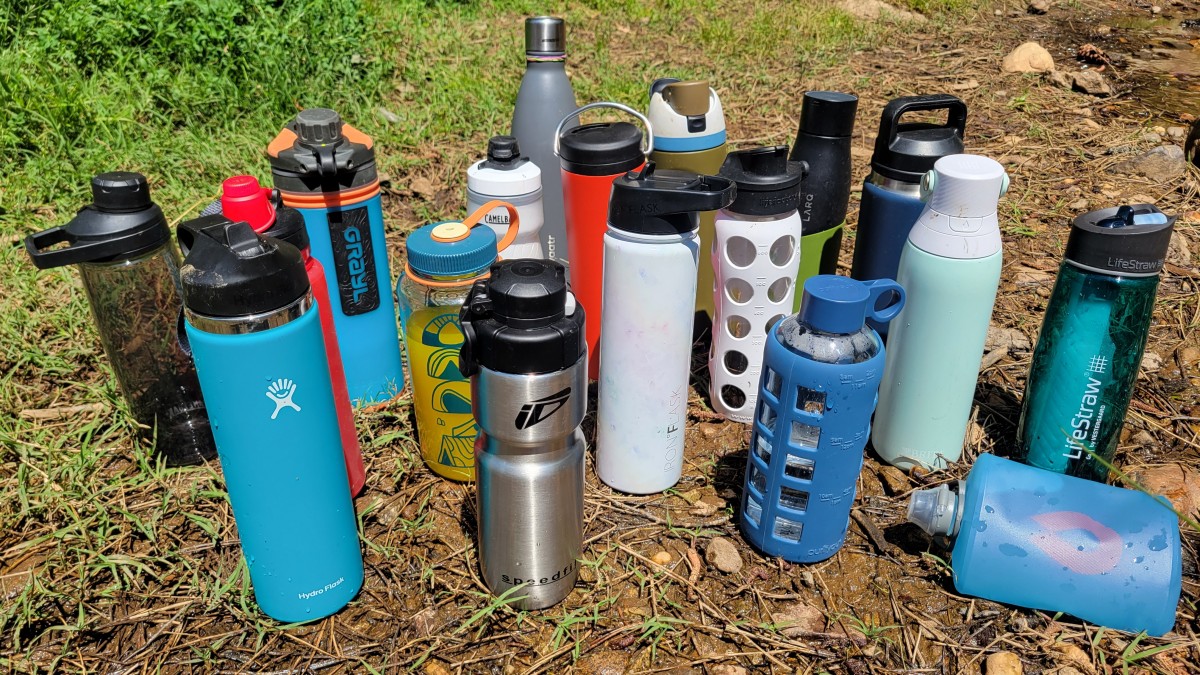
Credit: www.outdoorgearlab.com
Comparative Analysis
Comparative analysis shows aluminum water bottles are safe and hygienic. Alternatives to plastic, they do not contain harmful BPA. Stainless steel bottles are also recommended for their sustainability and toxin-free properties.
Aluminum Vs. Plastic Water Bottles
Aluminum and plastic water bottles have been a subject of debate when it comes to safety. Aluminum bottles are considered safer than plastic counterparts due to their low risk of leaching. However, plastic bottles, even BPA-free ones, can still pose health concerns. When it comes to durability, aluminum holds the upper hand, being scratch-resistant and durable.
Aluminum Vs. Stainless Steel Water Bottles
Comparing aluminum to stainless steel water bottles, stainless steel offers better longevity and hygiene. Stainless steel is known for being odour-resistant and easy to clean. On the other hand, aluminum bottles are prone to absorbing odours and flavours, making them less desirable over time.
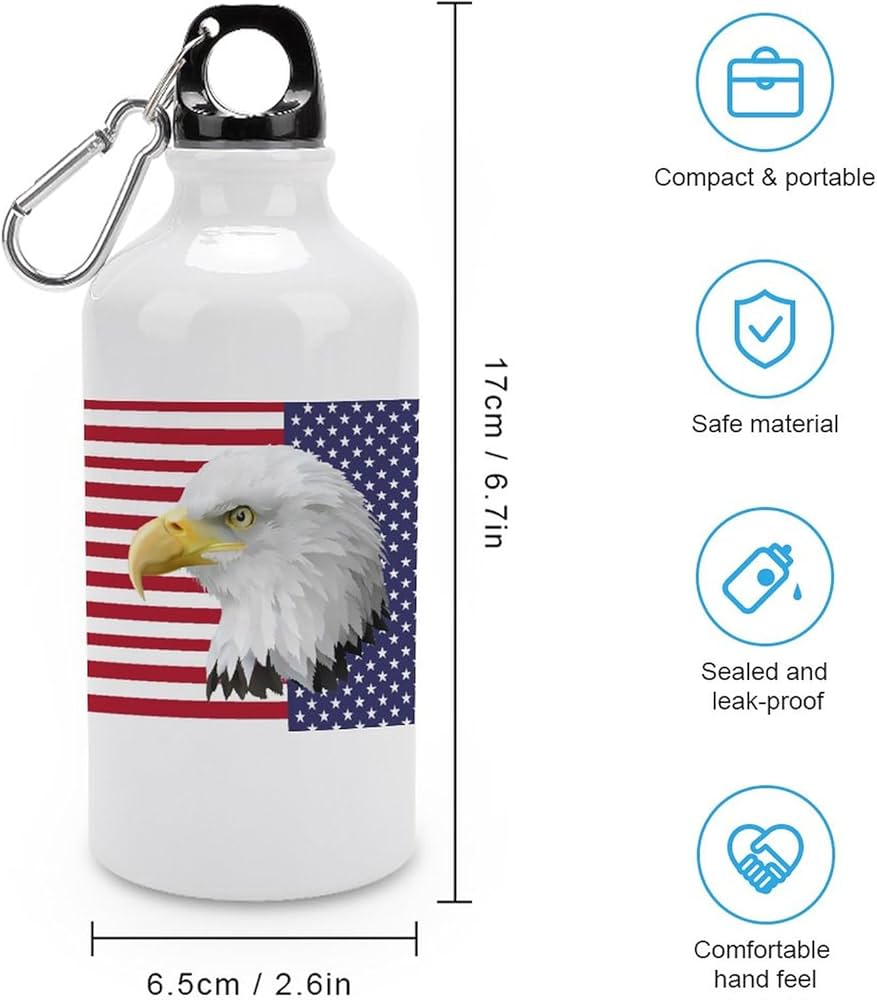
Credit: www.amazon.com
FAQs On Are Aluminum Water Bottles Safe
Is It Safe To Drink Water Out Of An Aluminum Bottle?
Drinking water from an aluminum bottle is safe, as per the CDC. Aluminum is not harmful and is a good alternative to plastic bottles, especially those with BPA. Additionally, aluminum is hygienic. However, aluminum bottles can absorb odors and flavors, are harder to clean, and scratch easily compared to stainless steel.
What Are The Disadvantages Of Aluminium Water Bottles?
The disadvantages of aluminium water bottles include absorbing odours and flavours, difficulty in cleaning, and being prone to scratching.
What Is The Healthiest Water Bottle To Use?
Stainless steel water bottles are the healthiest choice. They are sustainable, eco-friendly, and free from harmful chemicals and toxins.
Is Bpa In Aluminum Water Bottles?
Aluminum water bottles are generally safe to use. The CDC states that aluminum is not harmful and can be a good alternative to BPA-free plastic bottles. However, some aluminum bottles may contain high levels of BPA in the plastic parts.
It is important to check if the bottle has a plastic lining that is not disclosed on the packaging.
Conclusion
In sum, aluminum water bottles are a safe and viable alternative, particularly when compared to plastic. While they may have some drawbacks such as odor absorption and scratching, their overall safety and hygienic nature make them a popular choice for eco-conscious individuals.
Choose aluminum bottles for a healthy hydration option.

